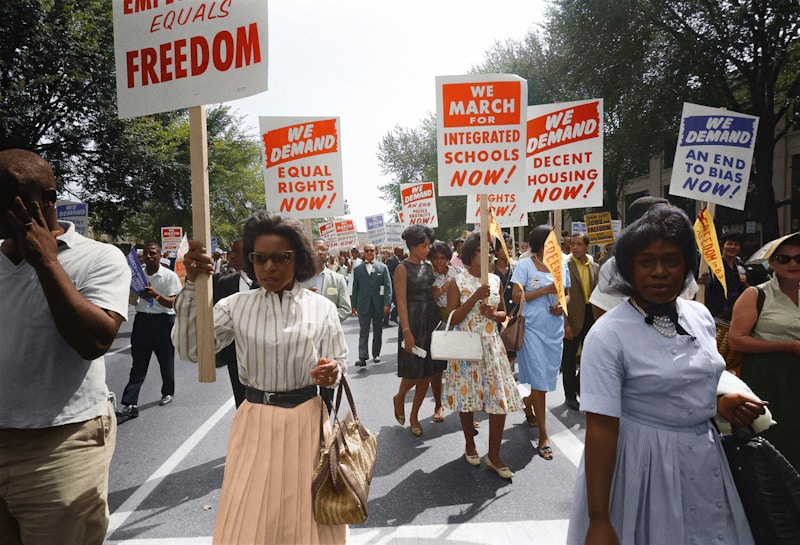Questions and Answers
What is a void civil marriage?
A civil marriage that has never come into existence.
Which of the following scenarios can render a civil marriage void due to non-compliance with formal requirements? (Select all that apply)
Which grounds can lead to the declaration of a civil marriage as voidable? (Select all that apply)
A void marriage can be ratified by either party after the fact.
Signup and view all the answers
What happens if a voidable marriage is not set aside by a court?
Signup and view all the answers
What is the primary consequence of a void civil marriage?
Signup and view all the answers
Which of the following is a ground for setting aside a voidable civil marriage? (Select all that apply)
Signup and view all the answers
Match the following terms with their definitions.
Signup and view all the answers
One party being _______ may lead to a voidable marriage.
Signup and view all the answers
Under what condition can a marriage involving a minor be voidable?
Signup and view all the answers
What is the main ground for setting aside a marriage according to Van Niekerk?
Signup and view all the answers
Which of the following statements are true about the decision in Van Niekerk?
Signup and view all the answers
The annulment of a marriage does not have retroactive effects.
Signup and view all the answers
What is a putative marriage?
Signup and view all the answers
What happens to children born of a putative marriage?
Signup and view all the answers
According to common law, a putative marriage is ____ ab initio.
Signup and view all the answers
What must be true for a marriage to be considered a putative marriage?
Signup and view all the answers
Study Notes
Void Civil Marriages
- A void marriage is one that never legally existed, meaning that it is treated as if it never occurred from a legal perspective. Such marriages carry no legal ramifications or validity under the law, which entails that parties involved in such unions have no legal recognition or rights typically afforded to married couples. This lack of legal acknowledgment often leads to complications regarding matters like inheritance, property rights, and spousal support, as the law essentially disregards any claims that might arise from the relationship.
- Reasons for nullity, which refer to the invalidity of the marriage, include non-compliance with formal or material requirements that are explicitly outlined by law to protect the institution of marriage. These requirements are designed to ensure that marriages are entered into freely, understanding the responsibilities involved, and that all parties meet certain criteria. Non-compliance can arise from various circumstances including lack of consent, mental incapacity, or significant discrepancies in age, among other factors which demonstrate why the union cannot be legally recognized.
- The general rule stipulates that failure to meet specified formal requirements renders a marriage void, and this principle is underscored by certain exceptions as recognized by the Marriage Act 25 of 1961. This legislation serves to formalize the requirements necessary for establishing a valid marriage, ensuring that the rights and responsibilities of marriage are clearly defined and that societal interests are protected. The Act outlines various procedural stipulations including the need for proper notification, the involvement of authorized officiants, and compliance with waiting periods that allow for potential objections to the marriage.
- Examples of formal non-compliance that lead to a marriage being designated as void include:
- Solemnization of the marriage conducted by an officer who is deemed incompetent by law, meaning they lack the authority or qualifications to officiate the marriage. This could refer to officials who do not meet the criteria set forth by law, such as religious leaders or civil servants who should be licensed to perform ceremonies. If a marriage is officiated by someone without the required credentials, it calls into question the legality of the union, resulting in automatic nullity.
-
- Parties engaging in the marriage who fall below the age of consent—specifically, a girl under the age of 15 years and a boy under the age of 18 years—without the relevant Ministerial consent, which is required to validate such unions involving minors.
- The absence of witnesses during the ceremony, which is a crucial formal aspect of the marriage process that can invalidate the ceremony.
- Examples of material non-compliance leading to void status include:
- Involvement of same-sex parties in marriages, which may not align with the legal definition of marriage under certain jurisdictions.
- One or both parties being already married to someone else at the time of the new marriage; this bigamy situation is a clear violation of marriage laws.
- Parties who are related within prohibited degrees, meaning they belong to familial relationships that are legally disallowed from marrying one another.
- A party being below puberty, which decreases the ability to consent and partake in the legal union.
- A party suffering from mental illness, which may impede their ability to fully understand and consent to the marriage.
- Void marriages do not create legal consequences, hence individuals involved in such marriages do not acquire property rights, support obligations, or the right to inheritance that would otherwise typically accompany a lawful marriage.
- The declaration of nullity—a legal term that signifies the official acknowledgment of the marriage's invalidity—can be sought by either party involved or by interested third parties. Importantly, this declaration remains valid even after the death of one of the parties.
- Although court orders for void marriages are recommended for the sake of legal certainty, they are not compulsory, meaning parties can potentially forgo this step if they choose.
- Certain exceptions exist that allow for the ratification of void marriages, which means a previously void marriage can be validated under specific conditions:
- If a marriage was conducted by an incompetent officer, this situation could potentially be ratified and legitimized by the Minister under particular guidelines.
- Permission granted for minors may help validate a marriage, provided that certain protective legal conditions are met, safeguarding the interests of the minor parties involved.
Voidable Civil Marriages
- A voidable marriage, in contrast to a void marriage, is considered valid until it is annulled by a court order. Thus, it retains its legal standing and recognition until challenged and subsequently declared void.
- Grounds for voidability, which allow for the annulment of such marriages, include a variety of circumstances that question the legitimacy of the consent given at the outset:
- Minority: If a minor enters into a marriage without obtaining the necessary parental or court consent, this renders the marriage voidable.
- Material Mistake: A material mistake refers to a serious misunderstanding or misrepresentation about either of the individuals entering into the marriage or about the essential characteristics that define the marriage itself. This can include being unaware of a vital fact about the other party, such as their identity, background, or legal capacity to marry. If such a mistake significantly impacts the decision to marry, the affected party may seek to invalidate the marriage, recognizing it as voidable rather than valid from the outset.
- Du
Studying That Suits You
Use AI to generate personalized quizzes and flashcards to suit your learning preferences.
Description
Explore the legal definitions and implications of void, voidable, and putative civil marriages. Understand the conditions that render a marriage null and void, and the grounds for nullity as recognized by the court. This quiz is essential for anyone studying family law.




